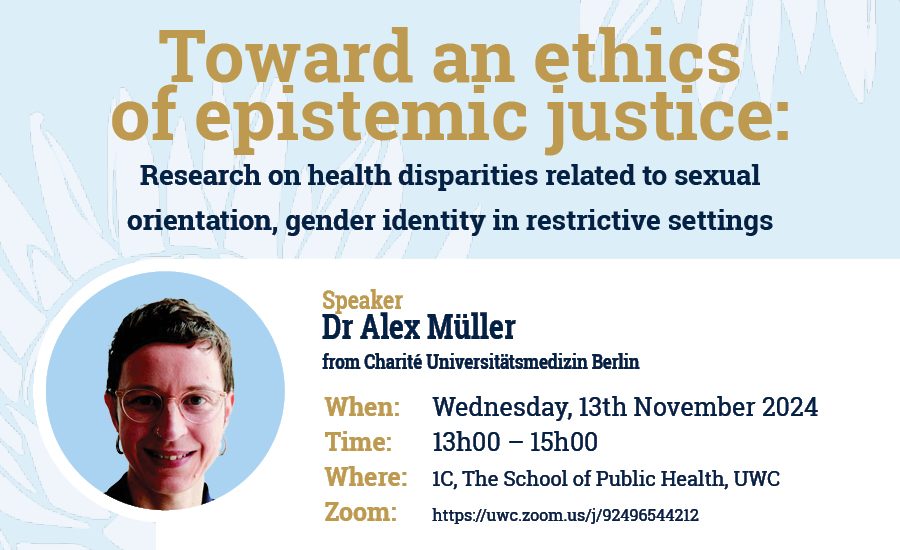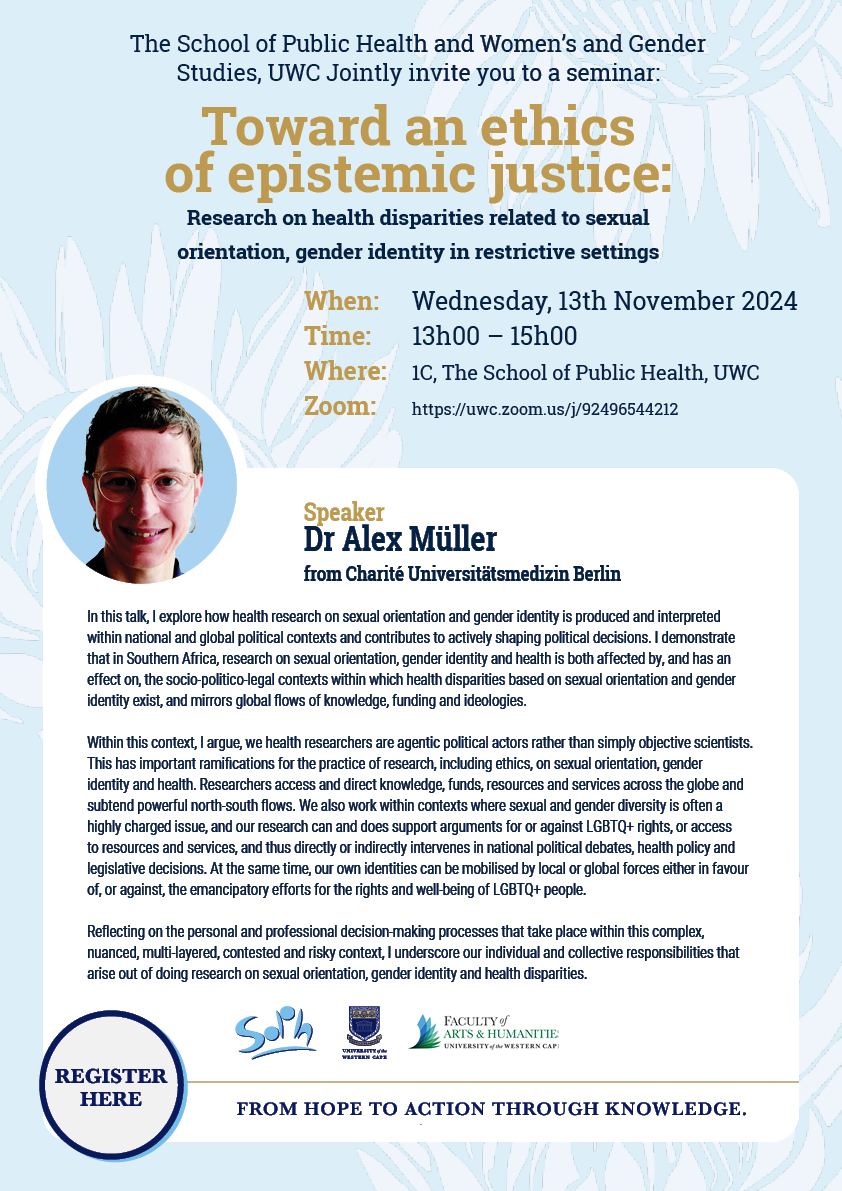
The Hidden Dangers of Improper Medication Disposal
7 November 2024
Centre of Excellence for Strengthening Health Products Safety Monitoring across Southern African countries (2 posts)
17 November 2024The School of Public Health and Women’s and Gender Studies, UWC Jointly invite you to a seminar:
Toward an ethics
of epistemic justice:
Research on health disparities related to sexual orientation, gender identity in restrictive settings
Date: Wednesday, 13th November 2024
Venue: 1C School of Public Health, UWC
Time: 13h00 – 15h00
Speaker
Dr Alex Müller
from Charité Universitätsmedizin Berlin
In this talk, I explore how health research on sexual orientation and gender identity is produced and interpreted within national and global political contexts and contributes to actively shaping political decisions. I demonstrate that in Southern Africa, research on sexual orientation, gender identity and health is both affected by, and has an effect on, the socio-politico-legal contexts within which health disparities based on sexual orientation and gender identity exist, and mirrors global flows of knowledge, funding and ideologies.
Within this context, I argue, we health researchers are agentic political actors rather than simply objective scientists. This has important ramifications for the practice of research, including ethics, on sexual orientation, gender identity and health. Researchers access and direct knowledge, funds, resources and services across the globe and subtend powerful north-south flows. We also work within contexts where sexual and gender diversity is often a highly charged issue, and our research can and does support arguments for or against LGBTQ+ rights, or access to resources and services, and thus directly or indirectly intervenes in national political debates, health policy and legislative decisions. At the same time, our own identities can be mobilised by local or global forces either in favour of, or against, the emancipatory efforts for the rights and well-being of LGBTQ+ people.
Reflecting on the personal and professional decision-making processes that take place within this complex, nuanced, multi-layered, contested and risky context, I underscore our individual and collective responsibilities that arise out of doing research on sexual orientation, gender identity and health disparities.


